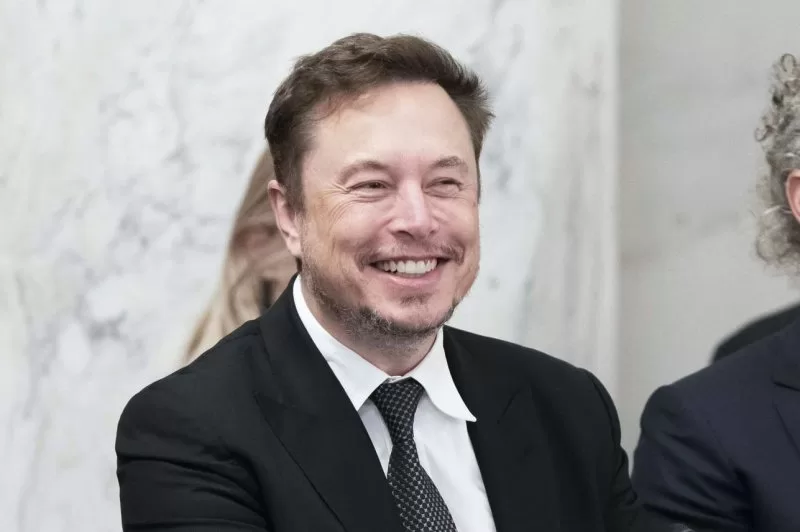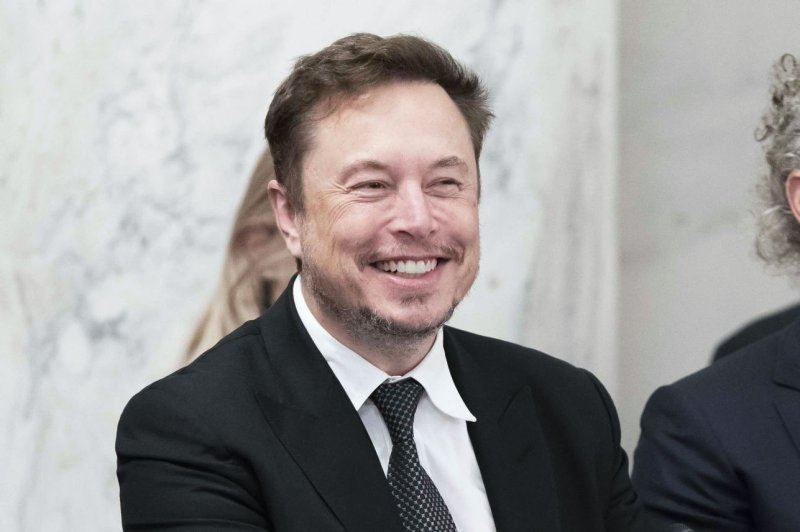OpenAI shared old emails from Elon Musk in which he supported its for-profit goals after he sued the company over its deal with Microsoft. File Photo by Bonnie Cash/UPI |
License PhotoMarch 6 (UPI) — OpenAI shared old emails from co-founder Elon Musk showing he had been on board with the company being less open with its science in response to a lawsuit he filed alleging the company’s deal with Microsoft was a breach of contract.
The emails, shared in a blog post Tuesday, showed Musk, the CEO of Tesla and SpaceX, agreed with other influential voices at the company, including co-founders Sam Altman and Greg Brockman, that it should share less information as the company grew over time.
The blog post cited a Jan. 2, 2016, email OpenAI’s Ilya Sutskever sent to Musk and Brockman, in which she presented that kind of timeline.
“As we get closer to building AI, it will make sense to start being less open. The Open in OpenAI means that everyone should benefit from the fruits of AI after it’s built, but it’s totally OK to not share the science (even though sharing everything is definitely the right strategy in the short and possibly medium term for recruitment purposes),” Sutskever wrote.
Musk responded to Sutskever’s email five minutes later with a simple “Yup.”
In the lawsuit filed last week, Musk charged that OpenAI is essentially in “breach of contract” in its $10 billion deal with Microsoft, as its current practices clash with its founding charter.
He claimed that product codes Open AI had promised to make public are now being hidden and that the company has abandoned its nonprofit mission with the Microsoft deal.
Using past emails as evidence, OpenAI said Musk knew all along that its company would need a for-profit entity to continue with its work and even helped OpenAI try to come up with a workable model.
It noted that Musk had pushed the company to announce $1 billion in funding commitment, adding that the non-profit raised less than $45 million from Musk and $90 million from other donors.
OpenAI added that Musk and the company in 2017 “decided the next step for the mission was to create a for-profit entity” at which point Musk declared he wanted majority equity, initial control of the board and to be named the company’s CEO.
It added that he withheld funding during the discussions which ended with the other leaders of the company saying it was against its mission “for any individual to have absolute control over OpenAI.
At that point, Musk suggested merging OpenAI into Tesla, and in February 2018 forwarded OpenAI’s leaders an email suggesting the company “should attach to Tesla as its cash cow.”
Musk said in an email that suggestion was “exactly right” if the company sought to “hold a candle to Google” in the AI space.
“Even then, the probability of being a counterweight to Google is small. It just isn’t zero,” Musk wrote.
However, Musk eventually left the company.
“Elon soon chose to leave OpenAI, saying that our probability of success was 0, and that he planned to build an AGI competitor within Tesla,” Open AI said in its letter. “When he left in late February 2018, he told our team he was supportive of us finding our own path to raising billions of dollars.”
Musk in January publicly declared that he wanted to up his shares of Tesla stock from 13% to 25% in order to grow the company’s AI and robotics sectors.

